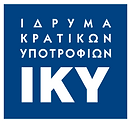Mediterranean Diet and Traditional Agricultural Practices
Dear students,
you will work according to this webquest in order to discover how traditional farming practices shape community life, culture and sustainability. Dive into collective farming, festivals, rituals and sustainable methods. Create mind maps, join discussions and collaborate on a digital museum exhibit to explore these rich agricultural traditions and their impact on Mediterranean communities.
Exploring Agricultural Traditions- Mapping the Mediterranean Connection
Traditional agricultural practices in the Mediterranean region are intricately linked with community life, reflecting a deep integration of farming and social structures. Historically,collective farming was prevalent, where communal lands were managed together and resources such as tools and irrigation systems were shared among farmers. This cooperative approach not only optimized agricultural efficiency but also strengthened social bonds within the community. Festivals and traditions tied to agricultural cycles further exemplify this connection; events like grape harvests and olive oil festivals celebrate collective achievements and reinforce cultural heritage.
Rituals associated with planting and harvesting hold significant cultural value, honoring deities or spirits believed to safeguard crops. These practices foster a shared sense of identity and continuity within the community. Family and kinship ties are central to Mediterranean farming, with multi-generational families working the land and passing down knowledge, which strengthens familial bonds and preserves agricultural traditions.
Knowledge is often transmitted orally from one generation to the next, ensuring that farming techniques and seasonal insights are preserved. Local markets act as crucial social hubs, facilitating economic exchange and community interaction, thereby supporting local economies and reinforcing community ties. Agricultural cooperatives and associations provide essential support to farmers, helping with marketing and resource management while promoting collaboration.
Cultural heritage is closely tied to agricultural practices, with methods and recipes reflecting regional identity and traditions. Sustainable practices, such as terracing and crop rotation, are integral to Mediterranean agriculture, emphasizing environmental stewardship and ensuring that resources remain available for future generations. In essence, traditional Mediterranean agriculture is not only about farming but also about fostering community cohesion, cultural identity, and sustainable living.
Group formation for the mindmap on "Mediterranean Agriculture’s Role in Community, Culture, and Sustainability''
You will create a mind map to explore and visualize the various ways in which traditional Mediterranean agricultural practices are connected to community life, culture and sustainability.
You will divide into trasnational groups. Starting from the central theme "Mediterranean Agriculture" in your digital canvas you will follow the branches that represent the main topics related to Mediterranean agriculture. Join this Google Doc to choose group and review your assignments:
https://docs.google.com/document/d/1kRzfW1I1C24lD61Amxf_DspxSUDJiPBJJyfTyt7L_3g/edit?usp=sharing
As described, you will create the mindmap is in the following Padlet:
Discuss on the forum ''How the interconnectedness of these practices contributes to the overall health and cohesion of Mediterranean communities?''
Preparing the ''Digital Museum on the Mediterranean Traditional Agricultural Practices''
The same nine groups are now assigned a Case Study, each with their specific group number, to collaboratively develop a digital museum exhibit that highlights their case studies on traditional agricultural practices in the Mediterranean region.
Case Study 1: Dry Farming in Southern Spain (Olives and Wheat)
Case Study 2: Terracing in the Cinque Terre, Italy (Vines and Lemons)
Case Study 3: Polyculture in Greece (Olive Trees with Herbs)
Case Study 4: Agroforestry in Morocco (Carob Trees with Cereals)
Case Study 5: Transhumance in Sardinia, Italy (Sheep)
Case Study 6: Viticulture in France (Grapes)
Case Study 7: Olive Cultivation in Crete, Greece (Olives for Oil)
Case Study 8: Herb and Spice Cultivation in Turkey
Case Study 9: Traditional Soil Management in Lebanon (Crop Rotation and Composting)
Focus on the:
Techniques and methods
Benefits and challenges
Relevance to sustainability and climate change.
Presentation and discussion
Present your results and discuss with your peers how the traditional agricultural practices highlighted in your case study could be adapted or improved to better address modern challenges related to sustainability and climate change.





